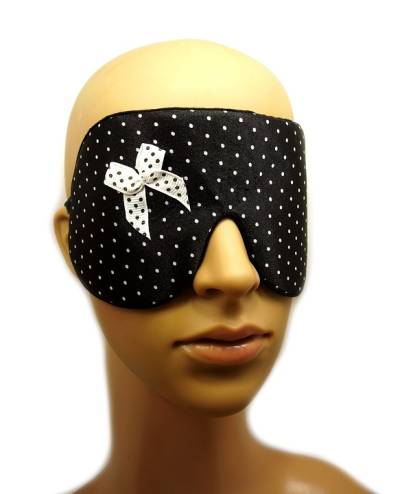No products in the cart.
How to Sleep Better

23
Jun
Do you wake up in the morning feeling more tired than you did before you went to sleep? Nothing is more frustrating than tossing and turning all night, getting woken up by the loud outside traffic or noisy neighbors. How you sleep greatly effects how you feel during your waking hours. Being sleepy throughout the day can not only leave you being unproductive, but it could be potentially dangerous to those driving or handling machinery. It is important to regulate your sleep schedule in order to obtain the deep, refreshing sleep you want night after night. The following tips will help you get the sleep you need to be rejuvenated and energized all day long.
Key Steps to Improving Your Sleep – Reduce Outside Noise
One scientific criteria sleep specialists use is Auditory Arousal Thresholds (AATs) – how loud does it need to be for you to wake up? In hospitals, this is a critical criteria, since nursing and other support staff need to keep noise below this level as they work to prevent constantly awakened patients, preventing them from being able to heal! You need to generally keep noise at or below 50 dBA in order to achieve a healthy REM sleep pattern for many healthy adults.
Just as important as AATs is Dynamic Range – this is the difference between quiet noises and loud noises. even if you’re well below the 50 dBA threshold, say at 30 dBA (a quiet ceiling fan), but something loud suddenly happens at 45 dBA (a book falls off the shelf), this sudden event can also awake you.
Therefore, a good noise level to promote sleep must include both overall noise and suddenly changing dynamic noise. By preventing both, you can greatly improve the sleep you get at night.
-
Create a Relaxing Sleep Environment
First and foremost, only use your bed for sleeping. Do not eat, work, watch TV, pay bills, or read in bed. When you use your bed for any activity besides sleeping, it is harder for the body to relax when you want it to relax. Keeping your bed as a place solely for sleeping will make it easier for the brain to shut off when you lay down at night.
We call this practicing good “sleep hygiene”. Many people will play games on the computer, or surf through work emails late at night. It becomes increasingly difficult to compartmentalize work-day stress and separate it from a peaceful environment if there is no physical barrier. One thing most sleep professionals agree on – leave work at the bedroom door!

Use blackout curtains and a sleep mask to minimize incoming light.
-
Reduce Outside Noise and Light
If you live in a noisy neighborhood or your neighbors are night owls, you may not be getting the continuous deep sleep you desire. There are a few solutions to this problem. You could wear earplugs to drown out the noise, but run the risk of being uncomfortable then laying on your side. Playing “white noise” from an app on your phone or computer is another option. Our proprietary solution is The AcousticCurtainTM soundproof curtain and AcoustiDoorTM Soundproof Door Cover, known as . They are one of the easiest and most affordable ways to soundproof your bedroom. These soundproofing curtains effectively reduce noise through a window or door by 90%, allowing you to sleep peacefully throughout the night.
For those with snoring partners, ear plugs can be a nuisance and sometimes a health nightmare (bacteria traps!!). There are some high-end options on the market such as oral appliances for sleep apnea or anti-snoring pillows such as the Brookstone BioSense Memory Foam Anti-Snore Pillow.
Even the smallest amount of light can keep the mind awake. Make sure that lights from your TV, phone and computer are either turned off or covered up so that they do not disturb your sleep. Covering your windows with a light-blocking curtain will increase sleep quality. The AcousticCurtainTM has the ability to block more than 99% of outside light.

Try to get into bed around the same time each night to promote a healthy, daily sleep schedule
-
Keep a Regular Sleep Schedule
Going to bed and waking up at the same times every day of the week allows your body to fall into a routine, which can make you feel better over time by reinforcing your body’s sleep-wake cycle.
These are also known as circadian rhythms. Many people who struggle with falling asleep benefit from staying the same schedule daily to promote the body’s awareness that it is time to relax and drift off.
-
Create a Relaxing Bedtime Routine
Before going to bed at night, find something you like to do that will calm and relax you. Reading a good book in dim light for 15-30 minutes before bed gives your body time to wind down before lying down for bed. Listening to relaxing music or doing yoga stretches designed for deep sleep are great for a pre-bedtime routine.
-
Eat Healthy and Get Regular Exercise
Everyone has heard the old saying “you are what you eat,” so make sure you are eating healthy! Don’t go to bed either hungry or stuffed. The discomfort could keep you up or wake you up in the middle of the night. Daily exercise is important to keep a healthy body and can promote better sleep at night. However, try not to exercise later than four hours before bedtime. Exercising has an awakening and energizing effect on the body which could make it harder to fall asleep.
-
Reduce Anxiety and Stress
Lying down at night and having a racing mind is sure to keep you up at night. Reduce anxiety and stress by making a list early in the day of things you need to get done. Throughout the day, check off chores you have already completed so that when you lie down at night you are not racking your brain of things you have not completed or have to do tomorrow.
Reducing Noise to Sleep Better
Noise is the leading contributor to restless nights for a large portion of the population. When there are loud noises outside, they can awaken you from a deep sleep, or make it impossible to fall asleep in the first place. This can become increasingly frustrating for those with sleep difficulty, which can promote further poor sleeping habits, such as waking up later or doing work in the bedroom.
By removing excess noise and minimizing dynamic sounds you can promote a healthier sleep environment and improve your overall sleep quality.
